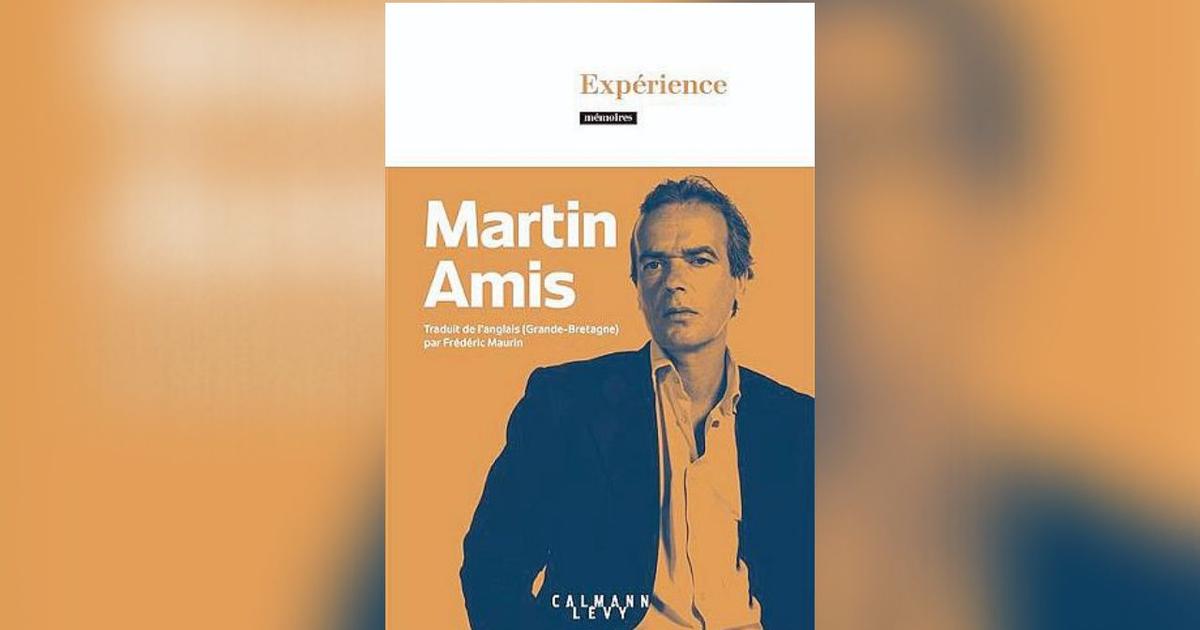Martin Amis, a giant of late twentieth-century British fiction, died Friday at age 73 of esophageal cancer. As American Michiko Kakutani, a former New York Times book critic, wrote in her 2000 memoir, Experience, he was "a writer endowed with an enormous arsenal of literary gifts: a dazzling, chameleonic command of language, a willingness to tackle big themes and social canvases, and a relentless gaze that sought the unhealthy ferment of contemporary life."
He was best known for deploying these literary weapons in lurid witty and linguistically daring novels, but he was also an essayist, memoirist, and critic of the first order. The books cited below reflect some dazzling peaks of Amis's career. Almost all his narrative work and literary essays have been translated into Spanish, in the Anagrama publishing house.
Rachel's Book (1973) This was Martin Amis's first semi-biographical novel, and presents him as an ingenious omnivore and a dark observer of life. The book is about Charles Highway, a know-it-all teenager, and his first love, Rachel Noyes, in the year before he entered college.
The novel is a "saga of the groin and the saga of late adolescence," the critic wrote, inquiring about Charles, an aspiring writer, as "a compulsive pimple squeezer, nostril epilator, used tissue inspector and wrinkle enumerator. ... It takes comic talent to make Charles the creature at once delicious and unappetizing that he is; Amis has it."
Fields of London (1989) Set in a decadent London, this brilliant novel with touches of black humor, is the detective plot about a murder that has not yet occurred. It involves Samson Young, an American novelist who suffers from writer's block, and a series of characters, in which the reader will find few redeeming qualities.
Critic Bette Pesetsky called Fields of London a "picaresque novel rich in effects", with the "virtuous depiction of a savage and lustful society. In an age of tenuous fictions, this is a great book of comic and satirical invention."
The Arrow of Time, or the Nature of Offense: (1991) The narrative conception of this novel is deceptively simple: the chronology is reversed and we go from the present backwards in time. Readers meet the protagonist, Tod Friendly, on his deathbed, and as the plot progresses, his life unwinds, moving from the hospital to the scene of a heart attack and much darker episodes. Friendly, readers discover, is the last of this man's pseudonyms: years earlier, he was a Nazi doctor who escaped from Europe for the United States.
Money: A Suicide's Art (1984) Many readers consider it the best of Amis's early novels. It tells the story of John Self, a British-American director of television commercials who lands in New York to shoot his first feature film. He's a slacker, a slacker, a disaster... and excellent company on the pages.
"The dynamism and strength of the book are at the service of a deeper energy," wrote critic Veronica Geng. "A reimagined naivety that urgently raises a big basic question: What are others supposed to do in the face of the spectacle of the death of a fellow human being?" Amis himself appears in the novel as a character, "a high-minded ascetic type given to theoretical chatter about the art of fiction and the phenomenon of 'gratuitous crime.'"
Information (1995) A novel about the jealousy one writer feels for another; it was published with great repercussion in British newspapers, partly because of the money Amis received for it. "At times satirical and tender, funny and disturbing, The Information is a major step forward in Amis's career," wrote Michiko Kakutani. "Here, in a story about middlelife yearning and literary despair, all the themes and stylistic experiments of Amis's earlier fiction come together in an effective symphony." Observes Christopher Buckley: "Amis is pretty dazzling here. Information "flattens out a bit halfway through, but you're never out of reach for a brilliant phrase, a stiletto metaphor, or a breath-taking vision of the human condition."
Experience: A Memoir' (2000) In 2019, critics from the British newspaper The Times included Experience among the 50 best memoirs of the last 50 years. Reviewing the book when it was published in 2000, Kakutani praised it predicting that it would be best remembered for its "wonderfully vivid portrait of the author's late father, comic novelist and poet Kingsley Amis." It is a portrait "animated by clear literary acumen and enduring love and affection."
In sum, he said, Experience is Amis's most complete book to date, a book that fuses his humor, intellect and audacity with a new seriousness and warmth, a book that stands both as a loving tribute to the father and a realization of his own generous literary talent.
The War on Cliché, 1971-2000" (2001) Amis brought the same ferocity and style to his literary essays as he did to his novels. The reviews and pieces in this collection are "systematically compelling, often enlightening and almost always entertaining," writes Michiko Kakutani. In them, Amis writes about Jane Austen, Vladimir Nabokov, John Updike and many others. "Amis's extraliterary interests such as chess, poker and nuclear weapons are represented, but briefly," Jenny Turner wrote in the literary supplement. "This is a portrait of the artist as a reader of great books."
From Within (2020) Amis himself defined his latest novel as "almost strictly autobiographical". It includes portraits of three writers who played crucial and cherished roles in his life: English poet Philip Larkin, novelist and Nobel laureate Saul Bellow, and historian Christopher Hitchens. The book is "an unstable and charismatic assemblage of fact and fiction," wrote Parul Sehgal in The Times. In Book Review, Tom Bissell called it Amis's "most beautiful book", in part because of its description of Hitchens' long death, which will leave "only the most hardened readers" unmoved. Sehgal also remarked, "It is in Hitchens that Amis enters a new registry. A writer so praised for his style (but also ridiculed for being all style), Amis accesses the depth of feeling and simplicity of language completely new in his work."
Copyright The New York Times




/cloudfront-eu-central-1.images.arcpublishing.com/prisa/MW6LQDYDA5HZBBGASEP3XSI4CM.jpg)



/cloudfront-eu-central-1.images.arcpublishing.com/prisa/KNY6DY4F3JEZVCNNDGKETUEVPU.jpeg)